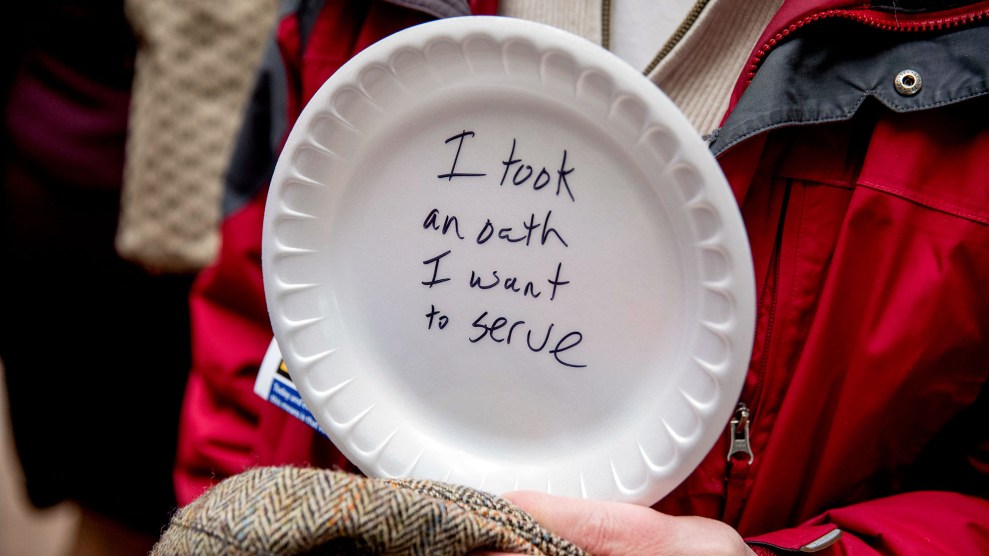
A furloughed government worker during a silent protest against the ongoing partial government shutdown.Andrew Harnik/AP
The partial government shutdown forced Jason Muzzey, an Agriculture Department contractor in Kansas City, Missouri, to stop work the day after Christmas. He hasn’t been back since. Now, without a regular paycheck, the IT specialist is scared he’ll miss his daughter’s health insurance payments, and has been forced to apply for shifts at a local McDonald’s and start a GoFundMe campaign to ask for money. Muzzey says he’s even taken out payday loans.
“It’s pretty rough,” Muzzy told Jamilah King, host of the Mother Jones Podcast, in an interview for the latest episode. “My girlfriend’s been trying to help me out. My roommate’s been trying to help me out, but it’s just a really bad situation financially right now.” He says he’s never faced this level of economic uncertainty before.
As the shutdown grinds into its fifth week, with only a glimmer of bipartisan hope to solve the crisis on the horizon, the podcast team spoke to federal workers and contractors who shared wrenching stories of trying to make ends meet.
Cara Dodge, another Mother Jones reader, normally works on educational exhibits for NASA in the Bay Area, a job she adores. Now she is counting the days until she must find other work to supplement her family’s slashed income. “It’s starting to get a little bit nerve-wracking now,” she said. “I really feel like we’re in complete unchartered territory.”
“My message to DC is, enough is enough,” she added. “I’m not only looking at you, President Trump, but I’m looking at you too, Nancy Pelosi. You know: Pull it together, and let’s remind me why we are the best country in the world. Make this work!”
Also on the show, Mother Jones reporter Tonya Riley visits a Washington, DC, food kitchen run by celebrity chef José Andrés that is dishing out free hot meals (and delicious-sounding pastries) to federal workers who suddenly need to watch every penny they spend.
“People start lining up 30 minutes before we open,” said Nate Mook, executive director for World Central Kitchen. “People are really hurting, and for the first time in their lives are having to stand in line to get a hot plate of food.”
Throughout the show, Angie Drobnic Holan, the editor of Politifact, helps to separate fact from fiction as the shutdown drags on—while trying to answer the one question on all of our minds: How will this end?
Listen to the latest episode of the Mother Jones Podcast below, and don’t forget to subscribe.












